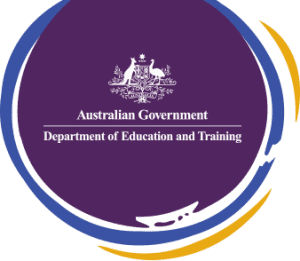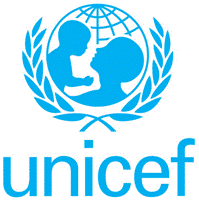Partnership with Families
Our Service participates in and values the National Quality Framework (NQF), including the National Quality Standard (NQS), the Early Years Learning Framework (EYLF) and the National Regulations – an Australian Government initiative linked to the funding of the Child Care Benefit for parents. This is conducted through the Australian Children’s Education and Care Quality Authority (ACECQA) and the state licensing department through scheduled site assessment visits and where appropriate, spontaneous visits.
The NQS provides standards of quality practices for care provided in our Service as well as guidance and support from the Service’s self evaluation through our Quality Improvement Plan (QIP). The system also allows educators to continually improve practices by identifying the quality aspects of care the Service is already providing and assisting the Service in developing goals for further improvement through our QIP. The Service is required to complete and submit a comprehensive QIP every twelve months.
Educators will involve parents, families and management in each stage to seek their input and views into practices and care in our Service – this includes having parent input into policy reviews, parent meetings and providing updates in newsletters about the Service’s current stage in the process.
In order to reduce bias and ensure that no child is excluded our service will abide by the following practices:
- Our service will promote and value cultural diversity and equity for all children, families and educators from diverse cultural and linguistic backgrounds;
- Our service will recognise that children and adults from all cultures have similar needs and that each person is unique and valuable;
- Our service will develop a positive self concept for each child and adult in the group by exploring the cultural backgrounds of each family and child;
- Our service will endeavour to provide a foundation that instills in each child a sense of self identity, dignity and tolerance for all people;
- Our service will increase the knowledge and understanding each child has about his or her own cultural ethnic heritage in partnership with their family, educators and community and other children in the Service;
- Our service will explore family compositions, customs and lifestyles of children and families in many cultures;
- Our service will assist, in partnership with parents, extended family and the community in exploring their own “roots” as they involve children in the culturally diverse environment of the Service;
- Our service will provide support for fostered or adopted children to develop a sense of heritage and belonging;
- Our service will avoid common stereotypes and recognise individual differences within a cultural or ethnic group;
- Our service will assist wherever possible families who are new to Australia with a transition to a new and different culture.
- Our educators will become aware of their own beliefs, attitudes, cultural backgrounds, their relationship with the larger society and their attitudes to people;
- Our educators will acknowledge that they too have been influenced by their own background prejudices and their points of view;
- Our educators will accept that all children can learn and that differences in lifestyles and languages does not mean ignorance;
- Our educators will broaden their own cultural and ethnic group awareness and help children to understand themselves in relation to their family, community and other cultures;
- Our educators will be actively involved in the development of appropriate resources, support and implement an anti bias, cross cultural program throughout the Service environment which is reflective of all families/children and the diversity present in Australian society and network with community agencies involved with cross cultural issues wherever possible;
- Our educators will be actively involved with children, showing respect, sharing ideas and experiences and asking questions.
- Our educators will access and make available resources and information supporting the delivery of anti bias concepts in the program and attend regular training courses as required. Such resources will be integrated into the daily program and be made available to families.
- Our educators will reflect on the service’s philosophy and ensure that practices and attitude concur with the philosophy.
- Our educators will work with families to encourage positive attitudes to diversity and an ant-bias ethos.
- Our educators will ensure that casual workers or visitors to the service are aware of these practices and respect these values.
- Children will listen to records and practice singing songs in different languages;
- Children will learn words and phrases in a language not native to children in their group;
- Children will talk to other children using the words from their culture;
- Children will be encouraged to become independent wherever possible and be actively involved with their peers.
- Children will explore with foods from other cultures (eg. have family members from different home cultures come in and cook, to have “food tasting” parties);
- Our service will encourage children to bring in real objects and artifacts used by their families that may be historical or typical of that child’s/family’s cultural group including food;
- Our service will help children to develop ease with and have a respect for physical, racial, religious and cultural differences.
- Our service will encourage children to develop autonomy, independence, competency, confidence and pride.
- Our service will provide all children with accurate and appropriate material that provides information about their own and other’s disabilities and cultures.
- Our service will not isolate a child for any reason other than illness, accident or a prearranged appointment with parental consent.
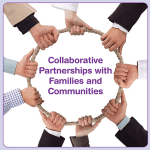
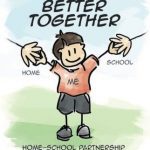
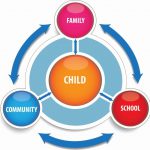
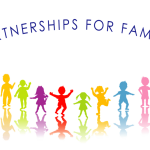
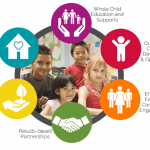
Community Family, Parent and Child Services
Family Resource Network
http://familyresourcenetwork.org/
Raising Children Network
http://raisingchildren.net.au/
Centrelink
http://humanservices.gov.au/customer/information/centrelink-website/
ACECQA – Australian Children’s Education and Care Quality Authority
http://www.acecqa.gov.au/
Early Years Learning Framework – English and translated versions
http://education.gov.au/early-years-learning-framework/
Parent Programs and Support
http://www.resourcingparents.nsw.gov.au/
Child Care Services and National Regulations for Children’s Services
http://www.mychild.gov.au/
http://acecqa.gov.au/national-regulations/
Immunisations
http://www.health.nsw.gov.au/immunisation/pages/default.aspx
Preventing Child Abuse
http://napcan.org.au/
Cancer Council Australia
http://cancer.org.au/sunsmart/
Kids Safe
http://kidsafensw.org/
http://kidsandtraffic.nq.edu.au/
Munch and Move – Physical Activity, Nutrition and Reducing Screen Time
http://healthykids.nsw.gov.au/campaigns-programs/about-munch-move.aspx
National Health and Medical Research Council NHMRC
http://nhmrc.gov.au/
Asthma Foundation NSW and Anaphylaxis Australia
http://asthmaaustralia.org.au/
http://asthmaaustralia.org.au/anaphylaxis.aspx/
UN Covention on the Rights of the Child
http://unicef.org.au/
Beyond Blue
http://Beyondblue.org.au/
Education and Care Services National Regulations
https://legislation.nsw.gov.au/view/html/inforce/current/sl-2011-0653
NSW Health Referral and screening services for Babies and Children
https://www.health.nsw.gov.au/kidsfamilies/MCFhealth/Pages/referral-screening.aspx


